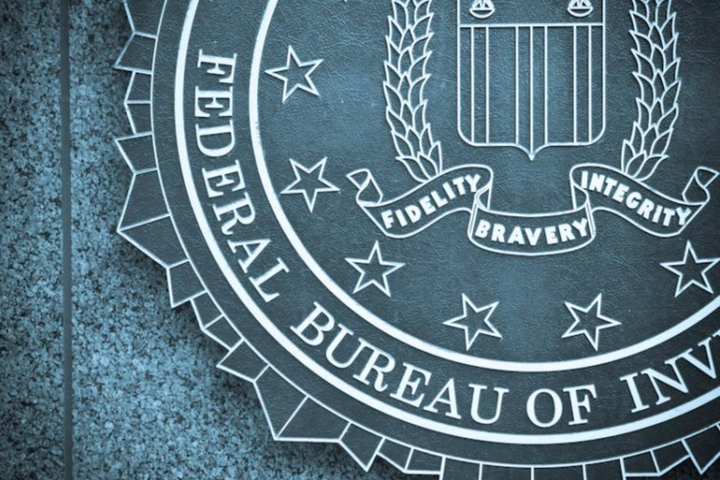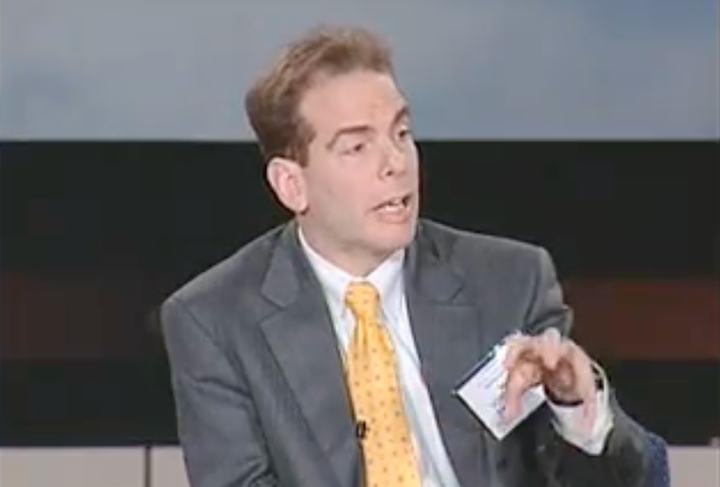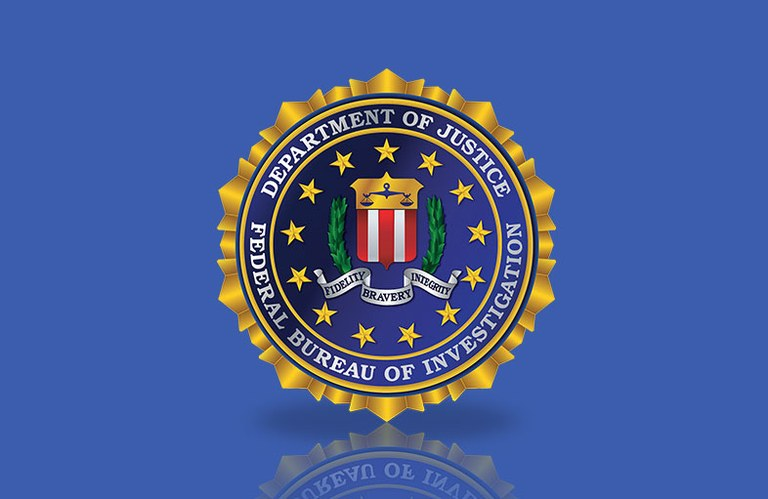US Judge Dismisses Wiretapping Charges In DOJ Prosecution Against A Journalist

A United States judge dismissed charges against journalist Timothy Burke that he violated a federal wiretapping law when he obtained and shared unaired portions of a Fox News interview between Tucker Carlson and Kanye West.
“Burke raises significant First Amendment concerns if the Wiretap Act facially prohibits the mere acquisition of communications using a device,” ruled Judge Kathryn Mizelle in the U.S. District Court for the Tampa Division of the Middle District of Florida.
Mizelle further stated, “The government does not allege in the indictment that Burke was not a party to the communications or that the electronic communications that Burke allegedly intercepted were not readily accessible to the general public, so dismissal is the ordinary remedy.”
The order [PDF] embraced several arguments put forward in July by a coalition of groups, including the Freedom of the Press Foundation (FPF), the ACLU, the ACLU of Florida, the Electronic Frontier Foundation (EFF), Free Press, and the Florida First Amendment Foundation.
Following the dismissal of wiretapping charges that were felony offenses, the coalition celebrated this First Amendment victory.
“This ruling is a significant victory for free expression and press freedom, and it will help restore confidence that journalists, researchers and members of the public are not breaking federal law simply by accessing or reviewing streaming information,” declared Bobby Block, the executive director of the Florida First Amendment Foundation.
Yanni Chen, who is the legal director for Free Press, said, “At a time when journalists face increasing risks for doing their jobs of holding power to account, this ruling affirms the essential protections they deserve and sends a clear message: The law cannot be twisted to criminalize newsgathering.”
“We’re in an environment where government officials constantly experiment with new ways to criminalize journalism and speech that embarrasses them,” added FPF advocacy director Seth Stern. “The prosecution’s theory would have allowed not only journalists but anyone who watched a livestream to be forced to defend themselves in court to stay out of prison.
“It would be naive to think the government wouldn’t abuse that kind of power. We’re relieved that the judge stood up for the First Amendment,” Stern further stated.
Burke was indicted in February 2024 by the Justice Department. Prosecutors depicted the Florida-based journalist as an economic cybercriminal. In addition to charges of violating the Wiretap Act, he was accused of conspiracy to defraud the U.S. government and multiple offenses in violation of the Computer Fraud and Abuse Act (CFAA).
The indictment was a response to Fox News, which claimed in 2023 that they were “hacked,” after unaired antisemitic rants by West were covered by the news media. The FBI raided Burke’s home newsroom, and the National Basketball Association (NBA) also alleged that Burke used “compromised credentials” to access NBA video streams.
But prosecutors have not alleged that Burke “hacked” into any databases or servers or committed a “computer intrusion.” Rather, the government alleges that he “scoured” the internet for “electronic items and information” that were “deemed desirable” for news reporting.
In the order to dismiss charges, Mizelle acknowledged that the government accuses Burke of allegedly gaining “access to StreamCo-Net, a livestreaming platform, and intercepted video and audio streams transmitted through it by a multinational media company and commercial broadcast television and radio network (Network #2).”
Prosecutors must prove that Burke was not a “party to the communication” and that any electronic communication was not ‘readily accessible to the general public,’” in order to remove “significant First Amendment concerns,” according to Mizelle.
"The government contends that the Wiretap Act creates no First Amendment problem because, while it might prohibit digitally accessing an article, it does not prohibit reading it,” recalled Mizelle. “The absurdity of this position is plain.”
“Were the government right,” Mizelle continued, “a regulation that prohibited members of the public from taking flyers on a matter of public concern—but permitted offering the flyers and reading them—would pass constitutional muster. That is not the law."
Just like the coalition of free speech groups, Mizelle zeroed in on a key constitutional issue with the government’s prosecution against a journalist: a person “can intentionally obtain a communication with no other nefarious or unlawful intent,” and still that would be within the scope of criminal conduct under the Wiretap Act.
Mizelle further outlined the court’s position:
The government’s argument that no First Amendment problem exists because “[t]he Constitution does not provide Burke the right to take others’ private and proprietary information” is therefore without merit…The question at this stage is not whether Congress may lawfully prohibit Burke’s particular alleged conduct—it may. The question is whether the statute’s structure raises serious First Amendment concerns—it does. And the government’s statutory interpretation arguments fail to mitigate those concerns.
Now, the government has several options. Prosecutors could proceed to trial without the Wiretap Act offenses, or they could ask the Eleventh Circuit Court of Appeals to overturn Mizelle’s decision. The government may also seek to amend the counts in the indictment by incorporating elements that must be included to “cure” the First Amendment concerns.
Either way, the judge confronted First Amendment problems that are central to the Justice Department’s discretionary choice to prosecute a journalist in service to Fox News.
While Burke still faces charges, if this order holds it appears that he may no longer face any felony offenses.
It is a tremendous setback in the government’s effort to criminalize a journalist. Free speech and press freedom groups should build on this victory by ramping up pressure on prosecutors to entirely abandon the prosecution.




Comments ()